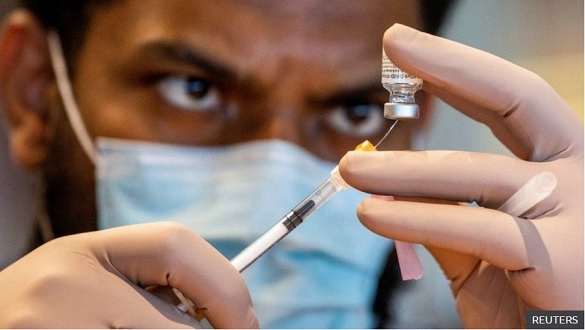
The US has thrown its support behind an initiative at the World Trade Organization (WTO) to waive intellectual property protections for coronavirus vaccines.
India and South Africa proposed the move, which they said would increase vaccine production around the world.
But drugs manufacturers argue it may not have the desired effect.
US Trade Representative Katherine Tai said that "extraordinary times call for extraordinary measures".
And she warned that it would take time for WTO members to reach a consensus decision on the matter.
India and South Africa were the leading voices in a group of about 60 countries which for the last six months has been trying to get the patents on vaccines set aside.
However, they met with strong opposition from the previous US administration of Donald Trump, the UK and the EU.
But Mr Trump's successor as US President, Joe Biden, has taken a different tack. He backed a waiver during the 2020 presidential campaign and reiterated his support on Wednesday.
The head of the World Health Organization (WHO) called the move a "monumental moment" in the fight against Covid-19.
What would the waiver mean?
If approved, supporters say, the waiver would allow production of vaccines to be ramped up and provide more affordable doses for less wealthy countries.
Many developing countries have argued that rules requiring countries to protect patents and other forms of intellectual property are an obstacle to ramping up the production of vaccines and other products needed to tackle the pandemic.
The US had previously helped block WTO negotiations about the waiver proposal led by India and South Africa aimed at helping developing countries to produce vaccines using the intellectual property of pharmaceutical companies.
Ms Tai said the US would now embark on negotiations at the WTO to try and secure the waiver. This could take time as WTO decisions require a consensus of all 164 members.

